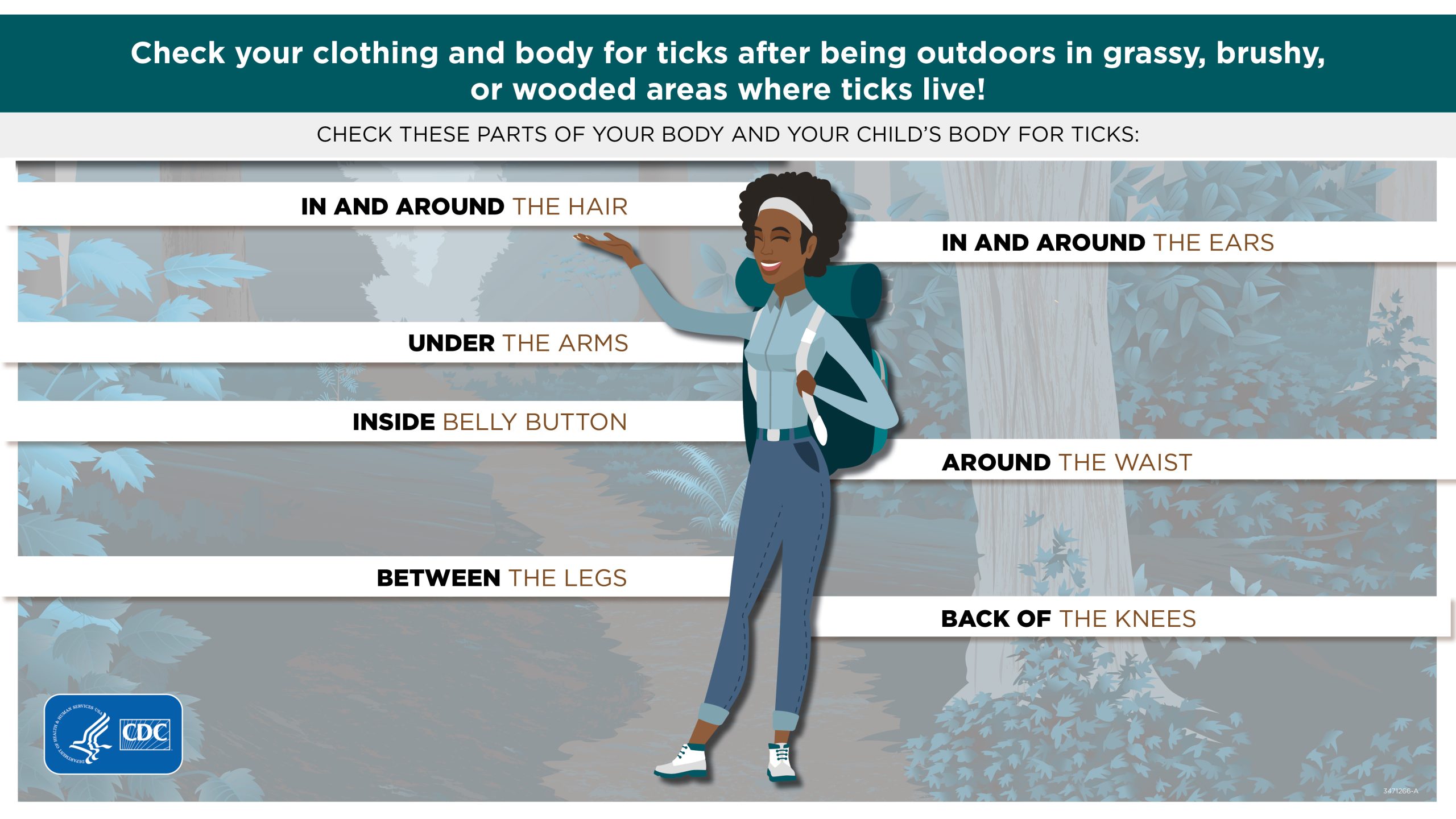Key points
- Tick-borne encephalitis virus is most commonly spread through the bite of an infected tick.
- Tick-borne encephalitis occurs in or near forests in parts of Europe and Asia.
- The best way to prevent tick-borne encephalitis is to prevent tick bites and get vaccinated before traveling, if vaccination is recommended for you.

Prevention tips
Tick-borne encephalitis virus is most commonly spread to people through the bite of an infected tick. Ticks that spread tick-borne encephalitis virus live in or near forests in parts of Europe and Asia.
The best way to prevent tick-borne encephalitis is to protect yourself from tick bites and get vaccinated before traveling, if vaccination is recommended for you.
- Use insect repellent
- Wear long-sleeved shirts and pants
- Treat clothing and gear with 0.5% permethrin
- Perform thorough tick checks after spending time outdoors
Additional information about protecting yourself from tick bites is available on the CDC Ticks website.
To avoid getting tick-borne encephalitis from infected dairy products, avoid eating or drinking unpasteurized (raw) milk and cheese from goats, sheep, or cows in affected areas.

Getting vaccinated
All travelers to countries with risk of tick-borne encephalitis should take steps to avoid tick bites and discuss the need for vaccination with their healthcare provider.